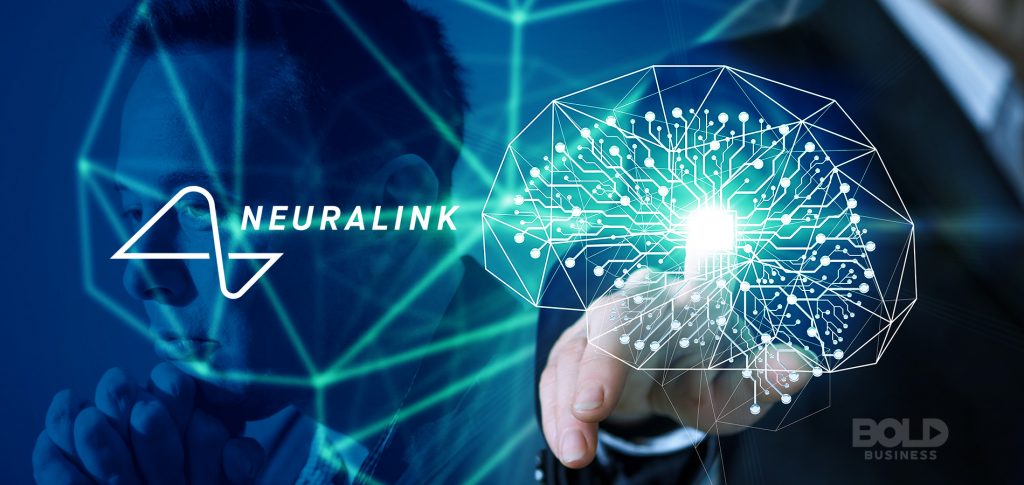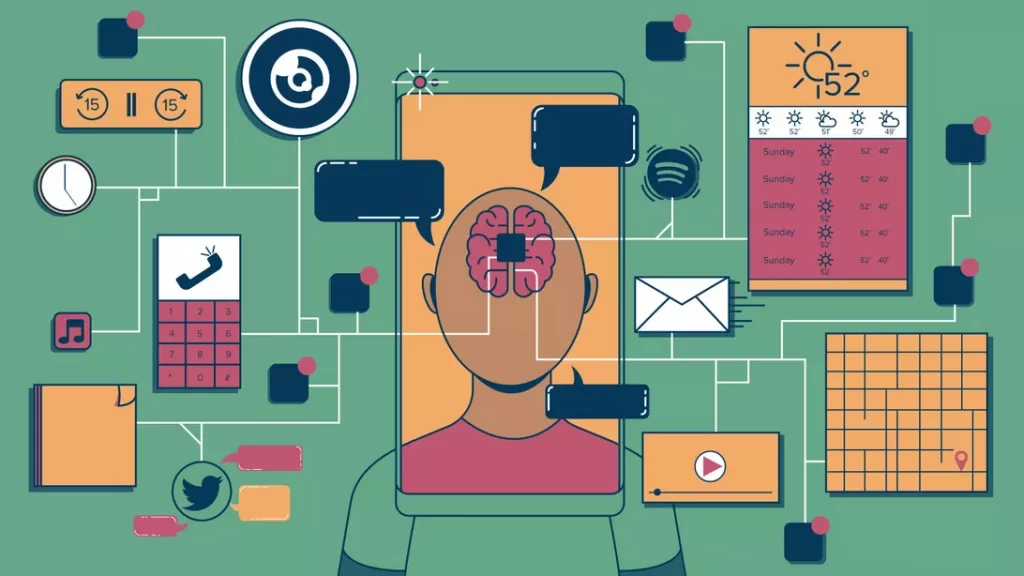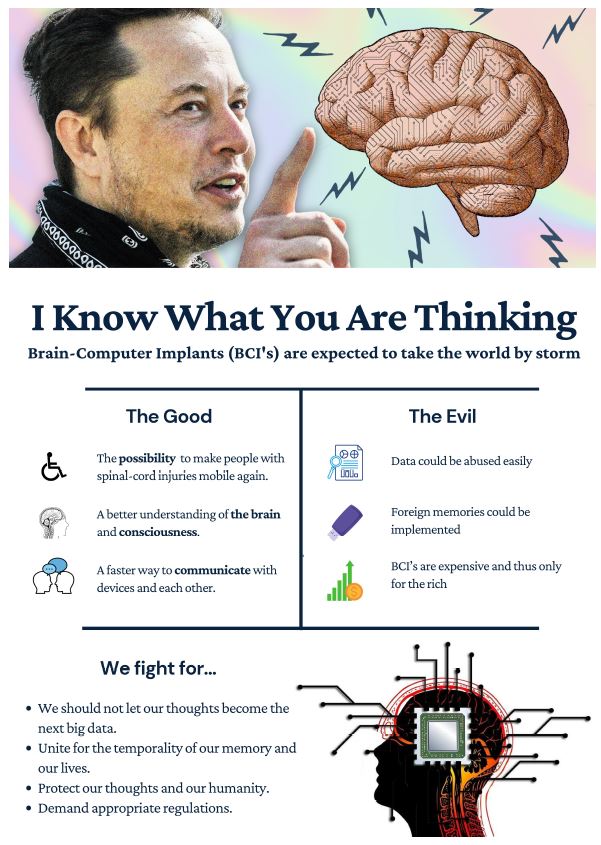The quest to understand how our brain works, is as old as the discovery of the brain’s functions. The Nobel Prize in Physiology or Medicine of 1906 was awarded jointly to Camillo Golgi and Santiago Ramón y Cajal “in recognition of their work on the structure of the nervous system.” These two scientists were the first to identify that our brains consist of nerve cells, or neurons. In 1963 the same Nobel Prize was awarded to Alan Hodgkin, Andrew Huxley and Sir John Eccles for their discovery of how neurons communicate: via electrical and chemical signaling. This gave way for research in the field of recording brain activity, done mostly using electroencephalograms (EEG’s), which uses electrodes to measure brain activity by measuring the electrical activity used by neurons to communicate.
These new technologies led us to have a better understanding of how the brain works, while also giving away to other mechanisms that can be used on the brain: how we can mimic the firing of these neurons. Brain-computer interfaces (BCI’s) acquire brain signals, analyze them, and translate them into commands that can carry out desired actions.
Goals of BCIs research
Originally, the goal of this research is to replace or restore useful functions to people that are disabled by neuromuscular disorders or spinal cord injury. In order for these computers to work in such a way, one needs to analyze all the brain’s activity and filter out the ones that are relevant to the person’s desired action. Elon Musk’s company, Neuralink, the biggest researcher at this moment in the field of BCI’s, recently started its first trials on humans. Their first objective is indeed to restore mobility to those that lost this ability, but their mission does not stop there. On their website the following is stated: “Neuralink’s long-term vision is to create BMIs that are sufficiently safe and powerful that healthy individuals would want to have them.” The goal of this company is not merely to help those that are disabled, but to distribute and normalize the use of enhancing technologies. Per se, we as AI students, are not against this, but considering the nature of these applications, we have a lot of questions that need to be answered.
Main ethical issues
Tackling the problem in a more direct approach, it is clear how BCIs used in the medical field can only improve the life quality of not healthy individuals. Brain chips work perfectly with issues related to the connection flow of information that we have in between the human brain and its body, such as the loss of muscle function, usually called paralysis, or mental diseases like Alzheimer’s, provoked by a loss-of-function mutation. Nowadays, technology is pushing towards a reality where these applications could resolve all of these issues. The Guardian wrote an article on the matter explaining how Elon Musk’s company named Neuralink is lining up clinical trials on humans already, due to the positive results reached with a pig named Gertrude, and Pager the macaque, stating that they would be already done with the studies related to solving muscle reaction problems in humans, if only law would permit the implants on people. But not all that glitters is gold, and if a deeper look is taken one can see how giving away your entire neural flow data could be catastrophic, especially when the product ends up in the wrong hands. For instance, all of these devices could, theoretically, be hacked in a way that you would not be able to be in control of your own mind, leading to a total fallout of modern society. Neuralink did point out this matter in a Q&A, saying that their technology is the most secure overall, but is that enough to risk your whole identity on it? This is one of the many questions that need to be studied and regulated in a much stricter manner than the one used up until today. In fact, even if nobody ever managed to breach the BCIs security walls, many people would still be scared of it happening, ending up not being able to feel secure in their own mind as every thought could always be taken away or changed by somebody else.

What do you want your world to be like
Another issue is the fact that, in order for such technologies to function, all of the brain’s work needs to be extracted and analyzed. Imagine a world where developers can actually code apps for BCIs, having access to your mental activity, a world where everybody uses the enhanced version of brain chips daily. Imagine a reality where software implementations ask you to set permissions for different parts of the brain, something that might look like ‘Facebook wants to access your vision’. This leads to the social media discussion we have nowadays such that, even though we know it is bad to be that connected with each other, we are so much into it that we cannot stop using those tools. If BCIs become normalized to a point where the latter sentence holds, there will be a huge market competition: say that the Neuralink firm might even have relatively ‘good’ and ethical intentions, would one say the same and unconditionally trust the chinese company named Huawei, that has already been highlighted with several data scandals? This kind of world is a world that society should refuse completely, understanding the hidden evil potential of such devices, and taking strong positions against them. To stress the actuality of these statements, the perfect example comes from a Neuralink Q&A where the firm stated proudly that they are already thinking about letting healthy individuals that do not strictly need an implant, play videogames, through their heads. Also, many mention the possibility of storage, back-up and even transfer memories and thoughts among humans. But what if people make and send deepfake memories to you, corrupting your brain with it? Everybody is so excited about the positives sides of it to a point where we cannot even realize the much bigger counterparts. Not to mention the great mental risks that it brings with it. As said earlier, even if already planned, human clinical trials are still yet to be legalized, because of the potential of personality change in individuals that become BCIs users: all in all, what it messes with are the neurons directly attached to our brain, leaving us with no certainty over the human reactions. This is what has been written by Karsten Witt and published in the Journal of Medical Ethics, from our point of view we think that the least companies should do is clearly state all of the possible counter effects of the chip, generating a high level of general awareness among the population on the matter. In fact, in current times most of the people do not really know what is going on, keeping closed eyes chasing a heavenly enhanced reality that will only ruin it all in favor of big tech industries, if not stopped properly.
Co-existence with machines
The last touched topic is slightly different from the previous ones, as the authors of the paper want to add it as an inspiration for future research, instead of considering it as a possible threat to humanity to think and reason upon. Generally, brain studies via these BCIs could lead to a much better picture of consciousness and the patterns that our mind goes through when we internally think about concepts or feel certain sensations. Once the overall mechanism is found out, research could be aimed at replicating such patterns, with the possibility of creating an artificial brain, indistinguishable from a biological one. The questions then become: would you want to live among computers, interacting with them, maybe not even knowing that they are driven entirely by software as in the Blade Runner movie? Would you like to be in a love relationship with such an entity? If not, would you still accept the robots as subordinates of humans, and would you consider it ethically correct for the machines?
Overall, the position taken here on the matter is very strict, cutting away all of the harmful and enhancing scenarios, strongly stating that society needs a lot more awareness on BCIs and the way they work before trying to answer to questions such as the previous ones; the following chapter is going to sum up all authors’ opinions, also proposing a concrete way of action towards a more ethically acceptable reality.

Ideas and possible solutions
Let it be clear that great future lies in this technology. Undeniably, this would be a great extension to life as we know it, making our memory close to infinite, having the ability to control all electronics, even as much as communication with others, through our minds solely. We have to ask ourselves the most pressing question: is that the future we want to build towards? Should we push to extend all our humane limits by means of artificial implants? Should we strive to make our mind transferable, allowing us to exchange our bodily forms? It is clear that that is what a lot of people strive for, and therefore we think that the commercial appliances of this technology should be highly regulated – if not abandoned as a whole. With great power comes great responsibility. It is clear that the masses are not ready to embrace such a responsibility as to watch over the privacy of their own brain. By observing the disastrous effects social media has had on our daily life already, let’s not let brain implants become the next curse people can’t get rid off. It should not be a question whether this will lead to ‘thought mining’, but rather how bad the worst application made with this data could be. In The Great Hack it is clearly demonstrated how much effect the little data that was gathered could have on outcomes of elections, the possibility of companies or even governments to have full access to the brain of people, can lead to much worse scenarios.
We propose that the world leaders gather and decide on a stance towards brain implants, with strict regulations and specific goals for the use cases that would be allowed. We should not let big corporations decide over the development of this technology, nor should we allow them to gather all the brain activity of its users. People that do not need brain implants for medical purposes, should not be allowed to have one at all.



